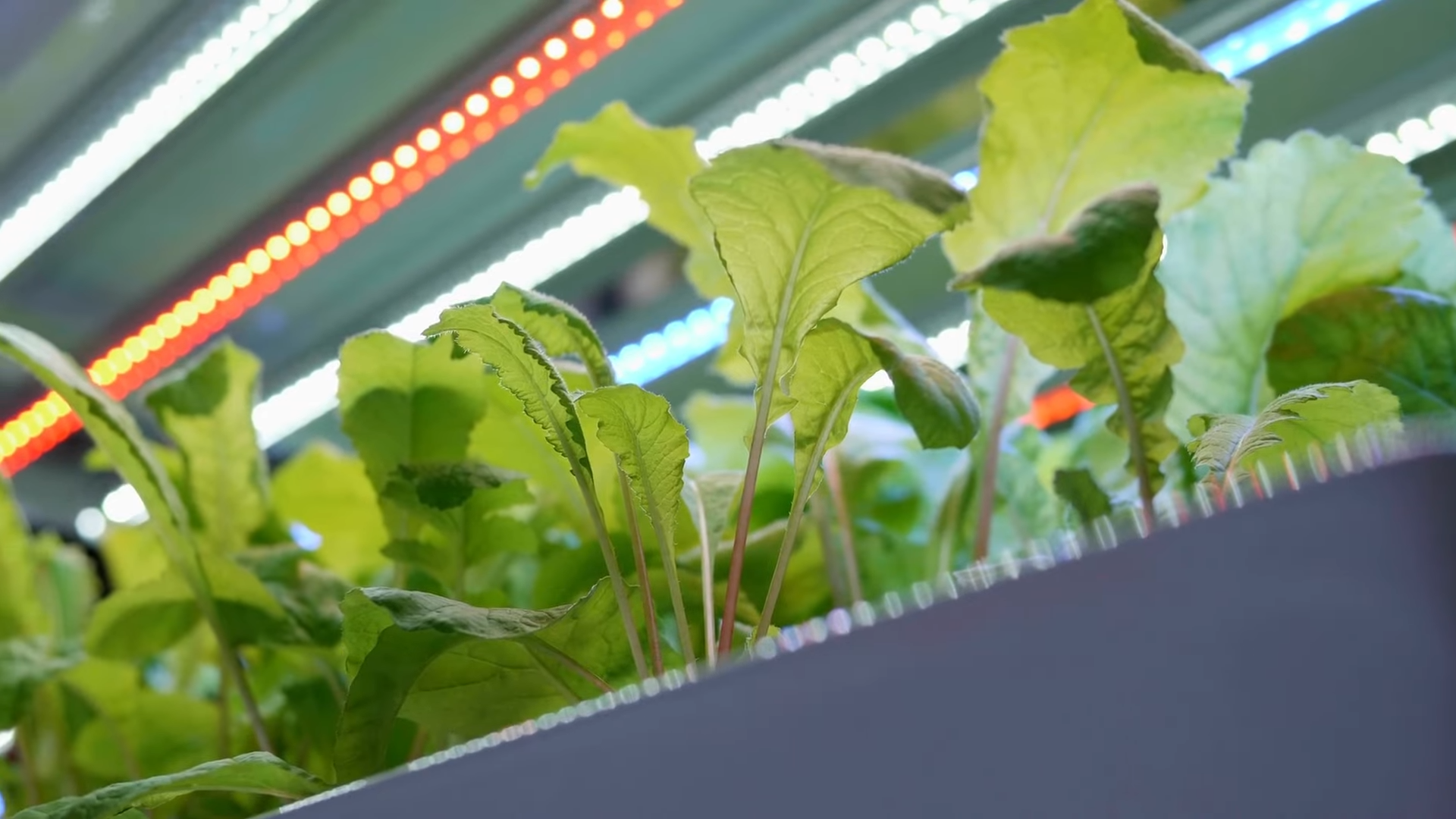In the ever-evolving world of agriculture, hydroponic farming has taken root as a revolutionary method for growing vegetables.
With its promises of sustainability and efficiency, hydroponics has gained popularity. Yet, lingering doubts persist - do hydroponic vegetables truly taste as good as their soil-grown counterparts?
In this blog, we delve into the science, dispel myths, and explore the delicious truth behind the flavor of hydroponic vegetables. Get ready to uncover the unexpected tastes that await in this modern agricultural marvel.
Advantages of Hydroponic Farming
Instead of relying on traditional soil-based methods, hydroponics nurtures plants in nutrient-rich water solutions. This approach offers several compelling advantages over conventional farming practices.
1. Water Efficiency
Hydroponic systems use up to 90% less water compared to traditional farming, making them a sustainable choice in water-scarce regions.
2. Space Utilization
The vertical arrangement of hydroponic setups allows for optimized space utilization, making it suitable for urban and indoor farming.
3. Enhanced Nutrient Control
By directly providing plants with essential nutrients through the water solution, farmers can tailor the nutrient balance to each crop's specific needs.
4. Faster Growth
With ready access to nutrients, hydroponic plants often grow faster than their soil-grown counterparts, resulting in higher yields.
5. Reduced Environmental Impact
Hydroponic farming minimizes soil erosion and the need for harmful pesticides, promoting eco-friendly agriculture.
Importance of Nutrient Solutions
In hydroponic systems, nutrient solutions serve as the lifeblood of the plants. These solutions are meticulously formulated to provide the necessary elements for optimal growth and development.
Nutrient-rich water allows plants to thrive without the need for soil, enabling them to focus more energy on fruiting and producing flavorful vegetables.
By understanding the crucial role of nutrient solutions in hydroponic farming, we can delve deeper into the impact they have on the taste and quality of the vegetables grown in these innovative setups. Let's explore the fascinating world of flavors that hydroponic vegetables have to offer!
Factors Affecting Taste in Hydroponic Vegetables
Hydroponic farming's unique growing environment plays a significant role in shaping the taste of the vegetables produced.
Two crucial factors that influence the flavor profile are the nutrient solutions and the controlled environment in which the plants thrive.
By examining how these factors impact taste and comparing it to conventional vegetables, we can gain valuable insights into the taste experience of hydroponic produce.
Impact of Nutrient Solutions and the Environment
1. Nutrient Balance
Hydroponic systems allow precise control over the nutrient balance, ensuring that plants receive an ideal mix of essential elements. This controlled nutrition can enhance the development of natural flavors and nutrients in vegetables.
2. Absence of Soil-borne Flavors
Unlike traditional farming, hydroponic vegetables grow without direct contact with soil. As a result, they are less likely to absorb soil-borne flavors, presenting a cleaner and more distinct taste.
3. Environment Regulation
Hydroponic setups enable growers to fine-tune environmental conditions, including temperature, humidity, and light exposure. These optimized conditions can positively influence the biochemical pathways responsible for flavor development.
Comparing Taste with Conventional Vegetables
1. Subjective Experience
Taste is subjective, and individual preferences can differ widely. Some consumers may find hydroponic vegetables to be more flavorful, while others may prefer the taste of conventionally grown produce.
2. Crop Variety
The taste of hydroponic vegetables can vary depending on the plant variety, just like in traditional farming. Certain crops may thrive exceptionally well in hydroponic systems, leading to exceptional taste experiences.
3. Chef and Consumer Perceptions
Chefs and culinary experts have experimented with hydroponic produce, often praising the vegetables for their consistent flavor and appearance. Likewise, consumers' perceptions of taste may be influenced by factors like freshness and texture.
By understanding the factors that impact the taste of hydroponic vegetables and comparing them to conventional counterparts, we can better appreciate the diverse and delightful flavors that emerge from this innovative farming method.
Let's unravel the truth about the taste of hydroponic vegetables and explore the exciting world of culinary possibilities they offer.
Common Misconceptions and Myths about Hydroponic Farming
Hydroponic farming has become a subject of intrigue and interest, but it has also attracted its fair share of misconceptions and myths.
Let's separate fact from fiction as we debunk some of the most prevalent misunderstandings surrounding hydroponics.
Myth 1: Hydroponic Vegetables Lack Essential Nutrients
Contrary to this belief, hydroponic vegetables can be just as nutritious, if not more so, than conventionally grown vegetables.
The controlled nutrient solutions in hydroponics allow farmers to tailor the exact nutrients plants need for optimal growth and development.
Studies have shown that hydroponically grown vegetables can contain higher levels of certain vitamins and minerals.
Myth 2: Hydroponic Vegetables Taste Bland or Artificial
Taste is a complex sensory experience influenced by various factors. While some may have assumed that hydroponic vegetables lack flavor due to their soilless nature, it's crucial to recognize that taste can vary depending on the crop variety, nutrient management, and environmental conditions. In many cases, hydroponic vegetables have been praised for their clean, consistent, and enjoyable taste.
Myth 3: Soil-Grown Vegetables Are Always Superior in Taste
Taste preferences are highly subjective, and while some individuals may have a preference for conventionally grown vegetables, others may find hydroponic produce to be equally or even more flavorful.
Hydroponic farming allows for year-round cultivation, which means fresher and more readily available vegetables, contributing to an enjoyable taste experience.
Myth 4: Hydroponic Farming Is Not Environmentally Friendly
On the contrary, hydroponic farming is considered a more environmentally sustainable option compared to conventional agriculture.
As mentioned earlier, hydroponics use significantly less water, reduce the need for harmful pesticides, and minimize soil erosion.
Additionally, the controlled environment in hydroponics enables better resource management and energy efficiency.
Myth 5: Hydroponic Farming Is Complicated and Costly
While hydroponic systems may require an initial investment and some technical knowledge, they have become more accessible and affordable over time.
Various DIY setups and user-friendly kits are available, catering to hobbyists and aspiring farmers. Moreover, the potential for increased yields and reduced resource consumption can lead to long-term cost savings.
By dispelling these common misconceptions and myths, we can gain a more accurate understanding of the capabilities and benefits of hydroponic farming.
Let's embrace the opportunities this innovative approach offers and appreciate the bountiful harvest of flavorful and nutritious vegetables it yields.
Tips for Flavorful Hydroponic Vegetables
For those looking to savor the full potential of hydroponic produce, here are some essential tips to ensure your vegetables burst with flavor.
1. Selecting the Right Varieties
- Research and choose vegetable varieties that are well-suited for hydroponic cultivation. Certain crops tend to thrive in this controlled environment, resulting in superior taste.
- Consider flavor profiles and personal preferences when selecting varieties. Some may have a sweeter taste, while others offer a more robust or delicate flavor.
2. Optimal Nutrient Management
- Maintain a well-balanced nutrient solution that caters to the specific needs of each plant. Pay attention to the required nutrients at different growth stages to promote optimal flavor development.
- Regularly monitor and adjust nutrient levels to prevent deficiencies or excesses, which could impact the taste and overall health of the vegetables.
- Implement a pH monitoring system to ensure the nutrient solution's acidity or alkalinity is within the ideal range for the chosen crops.
3. Temperature and Humidity Control
- Maintain a consistent and appropriate temperature range for the hydroponic setup. Extreme temperatures can negatively affect the biochemical processes responsible for flavor development.
- Monitor and regulate humidity levels to avoid issues like excessive moisture, which can lead to a lack of intensity in taste.
4. Adequate Light Exposure
- Provide sufficient light to your hydroponic vegetables, as it plays a vital role in photosynthesis and flavor formation.
- Choose appropriate artificial lighting options, such as LED grow lights, to mimic natural sunlight and optimize plant growth.
5. Proper Harvesting Techniques
- Timing is crucial when harvesting hydroponic vegetables for the best taste. Each variety may have its ideal stage of maturity when the flavors are at their peak.
- Harvest with care to avoid damage to the produce, which can affect its taste and texture.
6. Water Quality
- Ensure the water used in the hydroponic system is of high quality, free from contaminants and impurities that could impact taste and plant health.









No comments:
Post a Comment